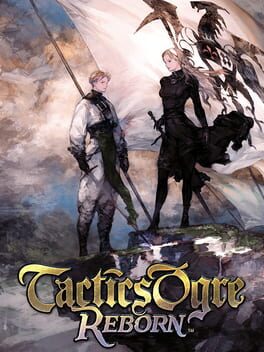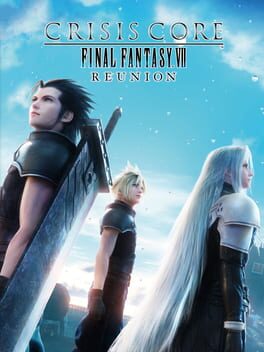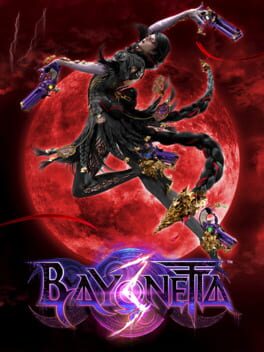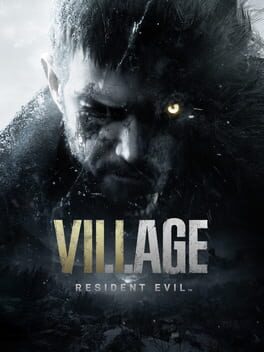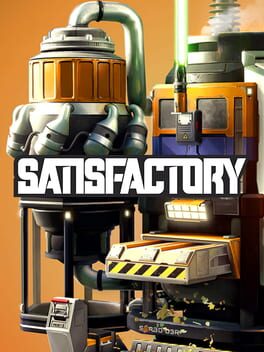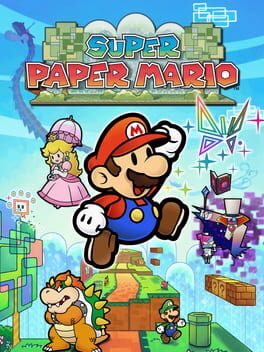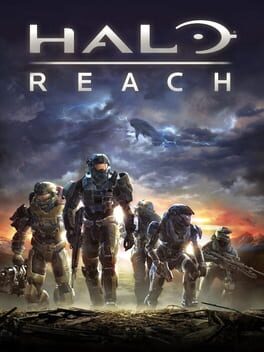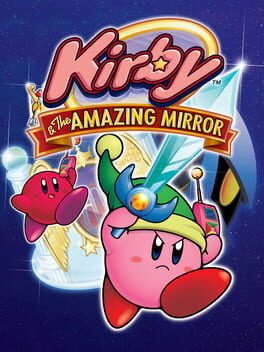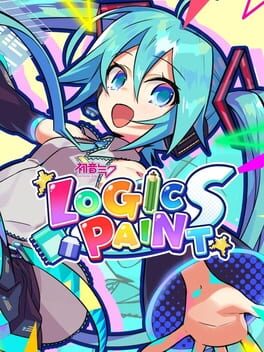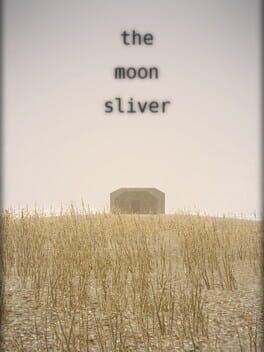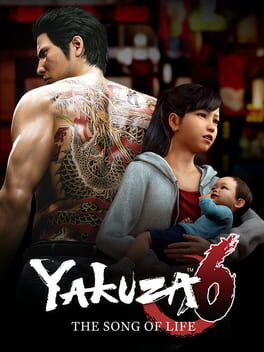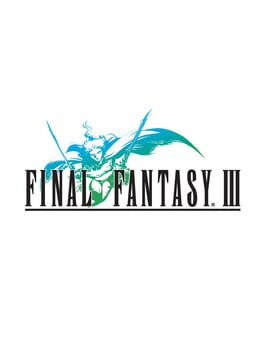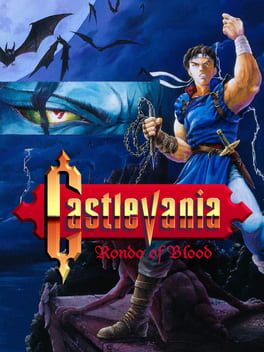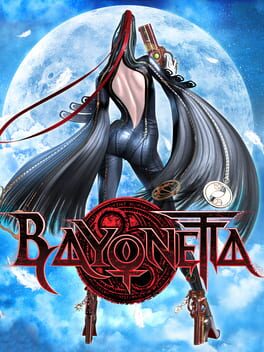VideoGameTim
BACKER
2022
There's a lot that does shine about Tactics Ogre, and a lot I do enjoy about it. It tells the tale of a man as he is trapped in a bloody war, with difficult choices to make and ultimately no truly right answers. In this respect, it is probably one of the best games to depict war and put the question to the player - do the ends justify the means?
It's not perfect - I do have some hangups regarding the plot. The antagonists are cartoonish villains, and one party member in particular (at least in the route I played) makes bafflingly stupid decisions as the game tries to guilt the player over it. It's a bit silly, but it's something easily overlooked in the grand scheme of the plot. The english voice acting for the most part is great. The main character, Denam, has an excellent performance from Max Mittelman who carries the game on his back, and many of the side characters were well done too. I felt the music to leave a little bit to be desired, but I did have a couple of standouts that I enjoyed a lot.
What really brings down my score here is the gameplay experience. Tactics Ogre is a slog. I normally love tactical games, but in this one there is just too much downtime and too many ultimately meaningless battles that feel like filler. There are some decent maps, but most are pretty lackluster and can be steamrolled, with the only real tactical decision I often needed to make was - do I need a dragoon here or not? There are definitely some great fights that do invoke just the right amount of challenge - the final dungeon in particular is fantastic. But the midgame is a bore with not a lot of payoff and retreading constantly over maps you've already beaten. The final chapter somehow both escalates the plot while also ensuring you have a mountain of trivial things to do if you are so inclined. I totally understand why people love this, but it's a bit too grindy for my taste and the fast-forward button is an absolute joke. If it was even twice as fast, maybe I wouldn't care so much.
For a tactical game, I feel I should also mention how strange it is there is no complete glossary of things like buffs/debuffs in-game. A handful are listed in the tips menu, but for most you can only get a description from a character who is actively affected by it. A lot of information is tucked away in those menus, so its strange we didn't get that but we did get a robust explanation of the calendar, which is mostly inconsequential.
Tactics Ogre is very impressive when you consider it came out for the SNES in 1995, and there is no doubt that it is among the best games on that platform. But I feel like it has not lived up to the expectations that its fanbase has left for me, which is a shame because I was really hoping it would. Maybe I'll go back and check out the stuff I missed sometime, but I think 69 hours was enough.
It's not perfect - I do have some hangups regarding the plot. The antagonists are cartoonish villains, and one party member in particular (at least in the route I played) makes bafflingly stupid decisions as the game tries to guilt the player over it. It's a bit silly, but it's something easily overlooked in the grand scheme of the plot. The english voice acting for the most part is great. The main character, Denam, has an excellent performance from Max Mittelman who carries the game on his back, and many of the side characters were well done too. I felt the music to leave a little bit to be desired, but I did have a couple of standouts that I enjoyed a lot.
What really brings down my score here is the gameplay experience. Tactics Ogre is a slog. I normally love tactical games, but in this one there is just too much downtime and too many ultimately meaningless battles that feel like filler. There are some decent maps, but most are pretty lackluster and can be steamrolled, with the only real tactical decision I often needed to make was - do I need a dragoon here or not? There are definitely some great fights that do invoke just the right amount of challenge - the final dungeon in particular is fantastic. But the midgame is a bore with not a lot of payoff and retreading constantly over maps you've already beaten. The final chapter somehow both escalates the plot while also ensuring you have a mountain of trivial things to do if you are so inclined. I totally understand why people love this, but it's a bit too grindy for my taste and the fast-forward button is an absolute joke. If it was even twice as fast, maybe I wouldn't care so much.
For a tactical game, I feel I should also mention how strange it is there is no complete glossary of things like buffs/debuffs in-game. A handful are listed in the tips menu, but for most you can only get a description from a character who is actively affected by it. A lot of information is tucked away in those menus, so its strange we didn't get that but we did get a robust explanation of the calendar, which is mostly inconsequential.
Tactics Ogre is very impressive when you consider it came out for the SNES in 1995, and there is no doubt that it is among the best games on that platform. But I feel like it has not lived up to the expectations that its fanbase has left for me, which is a shame because I was really hoping it would. Maybe I'll go back and check out the stuff I missed sometime, but I think 69 hours was enough.
Reunion is unquestionably the definitive version of Crisis Core. It is a direct facelift using FF7R's combat engine and textures while still retaining the cutscene animations of the original game. This results in a tremendously improved gameplay experience that made me want to do the endless side missions a lot more than I did in the original. Additionally, new QoL features like being able to skip limit break scenes and start over from the beginning of a fight if you Game Over are greatly appreciated.
Hilariously, the hold-over animations from the PSP version result in a lot of uncanny scenes of high fidelity characters still doing exaggerated PSP movements, and honestly I wouldn't have it any other way. None of the charm of the original ends up being lost here.
While we are dealing with a new voice cast as dictated by VII Remake, the new Zack grew on me quite well and the voices of other star characters are as impeccable as they were in VII Remake (maybe except for Reno). I'll always hold Gomez's performance (as the original Zack) in high regard, but it is certainly not enough for me to recommend the original release over this one in any way. If you love Crisis Core and want to replay it with a fresh coat of paint, or if it is your first time through, Reunion is absolutely recommended.
Hilariously, the hold-over animations from the PSP version result in a lot of uncanny scenes of high fidelity characters still doing exaggerated PSP movements, and honestly I wouldn't have it any other way. None of the charm of the original ends up being lost here.
While we are dealing with a new voice cast as dictated by VII Remake, the new Zack grew on me quite well and the voices of other star characters are as impeccable as they were in VII Remake (maybe except for Reno). I'll always hold Gomez's performance (as the original Zack) in high regard, but it is certainly not enough for me to recommend the original release over this one in any way. If you love Crisis Core and want to replay it with a fresh coat of paint, or if it is your first time through, Reunion is absolutely recommended.
2022
I've been disappointed with the output of Platinum Games for far too long. Ever since Revengeance, it's been licensed games, the mediocre and soulless Bayonetta 2, and the alright Astral Chain. Automata was outstanding, but it felt like none of that was a result of Platinum's contribution to the combat. It is with the utmost pleasure that Bayonetta 3 has surpassed all expectations and delivered on a true return to form, style, creativity, and humour.
Where can I even start here? The plot is insane (but not too convoluted like the previous title). Viola is a really fun new character and she offers a different sort of challenge during the opportunities you have to play as her, with an emphasis on parrying vs. dodging. She might lack Bayonetta's arsenal but she makes up for it in a really cool sword/punch move set.
Bayonetta 3 also breaks the curse that I have found plaguing every single character action title - environment design. As the game takes you to a large multitude of unique vistas, there is a lot to look at. Exploration too is at its most rewarding with lots of collectibles to find (figures, music, alternative challenge levels, challenge portals, etc.), while still maintaining the linear structure of previous games.
The weapon selection is also by far its most creative with a lot of batshit insane tools to choose from. They all have really cool animations and unique transport methods that replace your dash. The game also introduces summons that you can call out very liberally in battle (such as Gomorrah, Madame Butterfly, etc.). They actually can make combat a little bit too easy just because of how long they last and how much damage they do, but you are certainly free to not use them if you wish.
It also runs surprisingly well too for a Switch action game. Unlike Astral Chain, there is a lot less being teleported to the framerate dimension for smooth combat to take place. In fact, there are very rarely any frame drops outside of the odd hiccup.
It is immediately clear why the game had taken so long to come out. There are so, so, so many instances of unique gameplay sequences/minigames that depart from the standard combat gameplay and it really pays off because every single one put a smile on my face.
Simply put, Bayonetta 3 is a labour of love. It is a testament to every strength that Platinum Games has as a studio and the best game they've made in a long time. I really hope to see them put out something like this again someday, but even if they don't - I'm already more than satisfied.
Where can I even start here? The plot is insane (but not too convoluted like the previous title). Viola is a really fun new character and she offers a different sort of challenge during the opportunities you have to play as her, with an emphasis on parrying vs. dodging. She might lack Bayonetta's arsenal but she makes up for it in a really cool sword/punch move set.
Bayonetta 3 also breaks the curse that I have found plaguing every single character action title - environment design. As the game takes you to a large multitude of unique vistas, there is a lot to look at. Exploration too is at its most rewarding with lots of collectibles to find (figures, music, alternative challenge levels, challenge portals, etc.), while still maintaining the linear structure of previous games.
The weapon selection is also by far its most creative with a lot of batshit insane tools to choose from. They all have really cool animations and unique transport methods that replace your dash. The game also introduces summons that you can call out very liberally in battle (such as Gomorrah, Madame Butterfly, etc.). They actually can make combat a little bit too easy just because of how long they last and how much damage they do, but you are certainly free to not use them if you wish.
It also runs surprisingly well too for a Switch action game. Unlike Astral Chain, there is a lot less being teleported to the framerate dimension for smooth combat to take place. In fact, there are very rarely any frame drops outside of the odd hiccup.
It is immediately clear why the game had taken so long to come out. There are so, so, so many instances of unique gameplay sequences/minigames that depart from the standard combat gameplay and it really pays off because every single one put a smile on my face.
Simply put, Bayonetta 3 is a labour of love. It is a testament to every strength that Platinum Games has as a studio and the best game they've made in a long time. I really hope to see them put out something like this again someday, but even if they don't - I'm already more than satisfied.
Utterly fantastic followup to REVII that made me really care about the Resident Evil story for the first time in a very long time. Plenty of great areas to explore, weapons to unlock, and most of all the characters are all incredible. I'm really excited for what the future holds if this is going to be the new formula for Resident Evil and I hope they can maintain this level of quality.
2019
2007
2010
In some ways it feels strange to review a picross game because it's like, dude check out my review for this book of crosswords; but Logic Paint S is a solid game regardless.
It's genuinely impressive how they got several hundred unique pieces of Miku art for each puzzle (and each puzzle has something to do with said reward image). This is an extra mile that would be appreciated from the official Jupiter series. There's 18 songs on the soundtrack, (which seems pretty low given the massive catalogue of Vocaloid music) but they are all great picks and have something to do with puzzles too.
Gameplay-wise, it's serviceable. It's missing some QoL that the Jupiter series has (square counter, different types of markers) and because of the star system which you use to unlock songs, any mistake effectively means a restart if you want to "perfect" a puzzle as the game will also tell you immediately when you do so. I much prefer to be able to make mistakes and have to figure them out later as I fill in the rest.
Still, if you enjoy picross and you like Vocaloid, this is a pretty safe bet. I got around 80 hours out of it so the content is definitely there!
It's genuinely impressive how they got several hundred unique pieces of Miku art for each puzzle (and each puzzle has something to do with said reward image). This is an extra mile that would be appreciated from the official Jupiter series. There's 18 songs on the soundtrack, (which seems pretty low given the massive catalogue of Vocaloid music) but they are all great picks and have something to do with puzzles too.
Gameplay-wise, it's serviceable. It's missing some QoL that the Jupiter series has (square counter, different types of markers) and because of the star system which you use to unlock songs, any mistake effectively means a restart if you want to "perfect" a puzzle as the game will also tell you immediately when you do so. I much prefer to be able to make mistakes and have to figure them out later as I fill in the rest.
Still, if you enjoy picross and you like Vocaloid, this is a pretty safe bet. I got around 80 hours out of it so the content is definitely there!
2014
While I appreciate what he was going for with this one in terms of themes, it fell a little bit short of the mark. Even only being ~30 minutes, it felt a little bit plodding. Having the narrative text appear on screen as you walk around was a decent idea to keep players moving, but ultimately it meant there were sections where I still had to stop walking to read, or move away to make text disappear so I could read other text. In the end, notes probably would've worked better (especially considering the story).
On top of that, there were also a couple of key moments where I felt the narrative was telling, rather than showing. It would've been a lot more effective to hear sounds, rather than read about sounds for example. Still, I didn't totally hate it - it was more on the execution than the story itself.
On top of that, there were also a couple of key moments where I felt the narrative was telling, rather than showing. It would've been a lot more effective to hear sounds, rather than read about sounds for example. Still, I didn't totally hate it - it was more on the execution than the story itself.
Despite being a Fromsoft fan since 2013 when I first played through Dark Souls, I had not touched their longest running series before: Armored Core. With the release of Fires of Rubicon, I was excited to finally give it a try. For a litany of reasons, there is no doubt it is one of my favourite games of 2023 thus far.
Reason #1: The customization. You start your endeavour on Rubicon in a run-of-the-mill AC unit. Equipped with an assault rifle, some lock-on missiles, and an energy sword you have just enough to get by. As you complete more and more missions, you earn credits or perhaps even find new weapons and parts to customize your AC to your liking. Do you like lasers, bullets, plasma, pulse, melee weapons, or shields? You have two arm slots and two shoulder slots to augment your build as you see fit. What about your legs? Besides the standard bipedal choice, there's also spider legs that let you hover, tank legs for driving around, and reverse legs for high-manoeuvrability and spring jumping (my personal favourite). Often different missions will call for different leg choices for an easier time, but you can make due with your preferences to be sure. Every other part of the AC can be customized too, from the head to the arms to the boosters to the generator. All of the components make up what your AC can support and is capable of. And once that is all out of the way, how about the look? You can paint, shine, and weather each individual part to match the look you want, with each part also having several different channels to paint. You can also even create your own decals to paste all over your mech as you see fit.
Reason #2: It is absolutely fucking cool. There aren't enough games that give a great sense of scale but AC6 is certainly one of them. Like Xenoblade or the old God of War trilogy, you really feel how small you are compared to other massive objects both in the map and in the background, but it also reminds you how massive you are when you take cover behind an apartment complex that just barely reaches your height. The visual effects are stellar too with lots of explosions and lasers going off that contrast the bleak landscape. The game also features a fantastic cast of characters that are both fun to fight with and against, and a very intriguing overarching story which has been the best story-telling I've experienced from Fromsoft to date (admittedly not a high bar).
Reason #3: The mission variety. There is a good amount of missions in the game which all have you tackling pretty fun objectives and a stellar list of bosses as well. Some of them felt either too hard or too easy at times, but I imagine that's really all up to different builds being suited to different things, and how willing the player is to adapt. Longer missions require larger ammo counts (or maybe a melee weapon to conserve), whereas certain bosses are more susceptible to certain types of damage so you must plan accordingly. The game also features multiple endings, and while that may feel like a big commitment, your subsequent playthroughs move lightning quick with your end game builds and prior knowledge. They also do a respectable job of keeping each playthrough feeling fresh. Maybe the only minor complaint I have is that the game features a ranking system, but only when you reattempt missions through the replay menu. I would have felt a lot more inclined to get better ranks on missions if even my NG+ and beyond playthroughs just ranked my story attempts (this is a really minor thing though).
Overall, AC6 is a very cool and very fun game. Tons of weapons and builds to choose from with low commitment if you want to try something else, and the missions are just the right length where none feel too long. It really feels like we don't get a lot of mission-based games like this anymore from AAA developers and I hope to see more like this again.
Reason #1: The customization. You start your endeavour on Rubicon in a run-of-the-mill AC unit. Equipped with an assault rifle, some lock-on missiles, and an energy sword you have just enough to get by. As you complete more and more missions, you earn credits or perhaps even find new weapons and parts to customize your AC to your liking. Do you like lasers, bullets, plasma, pulse, melee weapons, or shields? You have two arm slots and two shoulder slots to augment your build as you see fit. What about your legs? Besides the standard bipedal choice, there's also spider legs that let you hover, tank legs for driving around, and reverse legs for high-manoeuvrability and spring jumping (my personal favourite). Often different missions will call for different leg choices for an easier time, but you can make due with your preferences to be sure. Every other part of the AC can be customized too, from the head to the arms to the boosters to the generator. All of the components make up what your AC can support and is capable of. And once that is all out of the way, how about the look? You can paint, shine, and weather each individual part to match the look you want, with each part also having several different channels to paint. You can also even create your own decals to paste all over your mech as you see fit.
Reason #2: It is absolutely fucking cool. There aren't enough games that give a great sense of scale but AC6 is certainly one of them. Like Xenoblade or the old God of War trilogy, you really feel how small you are compared to other massive objects both in the map and in the background, but it also reminds you how massive you are when you take cover behind an apartment complex that just barely reaches your height. The visual effects are stellar too with lots of explosions and lasers going off that contrast the bleak landscape. The game also features a fantastic cast of characters that are both fun to fight with and against, and a very intriguing overarching story which has been the best story-telling I've experienced from Fromsoft to date (admittedly not a high bar).
Reason #3: The mission variety. There is a good amount of missions in the game which all have you tackling pretty fun objectives and a stellar list of bosses as well. Some of them felt either too hard or too easy at times, but I imagine that's really all up to different builds being suited to different things, and how willing the player is to adapt. Longer missions require larger ammo counts (or maybe a melee weapon to conserve), whereas certain bosses are more susceptible to certain types of damage so you must plan accordingly. The game also features multiple endings, and while that may feel like a big commitment, your subsequent playthroughs move lightning quick with your end game builds and prior knowledge. They also do a respectable job of keeping each playthrough feeling fresh. Maybe the only minor complaint I have is that the game features a ranking system, but only when you reattempt missions through the replay menu. I would have felt a lot more inclined to get better ranks on missions if even my NG+ and beyond playthroughs just ranked my story attempts (this is a really minor thing though).
Overall, AC6 is a very cool and very fun game. Tons of weapons and builds to choose from with low commitment if you want to try something else, and the missions are just the right length where none feel too long. It really feels like we don't get a lot of mission-based games like this anymore from AAA developers and I hope to see more like this again.
The end of the Kiryu saga. While it doesn't quite reach the heights of 0 or 4 to me, the new engine was a much needed breath of fresh air for the series, and Onomichi is a wonderful location. The story is just the right amount of insane that I have really come to love and enjoy from the series, and its a good sendoff before the new era of Yakuza begins.
2006
It's tough for me to really judge how I feel about a game like this so far removed from the timeframe that it released. That being said, it's certainly impressive how much FFIII had going on. A large sprawling world map to explore in your airship, the first iteration of the job system, and tons of optional hidden content. This is also the 3D remake of the original game and no doubt a lot of QoL was implemented and things were improved or changed, but it is still a little rough around the edges.
The game can be a little obtuse at times, but you do get some direction either from talking to townspeople or a main character mentioning what your next goal should be. This being the first implementation of it, I found you also don't often have to interact with the job system. There are a couple of times where a thief or a dragoon is necessary (or ideal) to progress, but for the most part I picked the jobs I liked and used them through the whole game. It seems optimal to do so too unless you want to grind, as the higher the job level, the better off you are.
Regardless, it was still pretty cool to see where FFXIV pulled a lot of its inspiration from. The crystal tower, doga/unei, the cloud/world of darkness, and even some of the music; speaking of which, its a pretty good soundtrack that didn't get too tiring after 20 or so hours.
All in all, FFIII is a solid package that I could definitely recommend if you're curious about the roots of the franchise - just prepared for nothing too mind-blowing by today's standards.
The game can be a little obtuse at times, but you do get some direction either from talking to townspeople or a main character mentioning what your next goal should be. This being the first implementation of it, I found you also don't often have to interact with the job system. There are a couple of times where a thief or a dragoon is necessary (or ideal) to progress, but for the most part I picked the jobs I liked and used them through the whole game. It seems optimal to do so too unless you want to grind, as the higher the job level, the better off you are.
Regardless, it was still pretty cool to see where FFXIV pulled a lot of its inspiration from. The crystal tower, doga/unei, the cloud/world of darkness, and even some of the music; speaking of which, its a pretty good soundtrack that didn't get too tiring after 20 or so hours.
All in all, FFIII is a solid package that I could definitely recommend if you're curious about the roots of the franchise - just prepared for nothing too mind-blowing by today's standards.
2009
